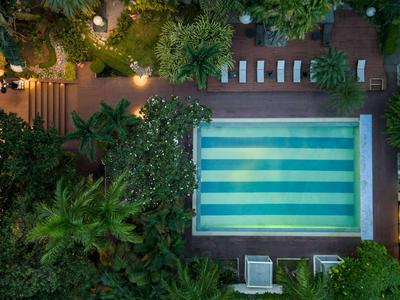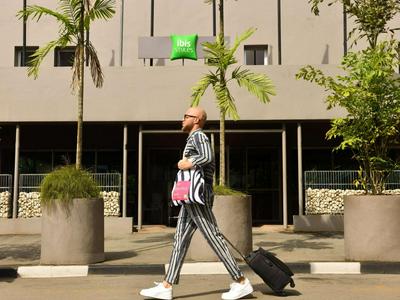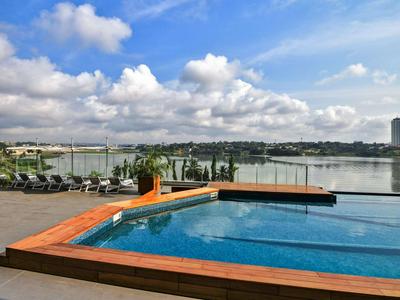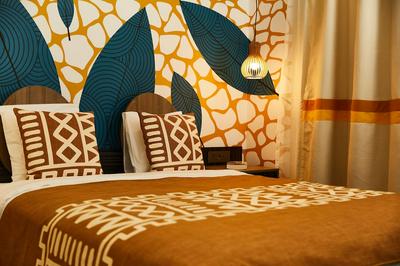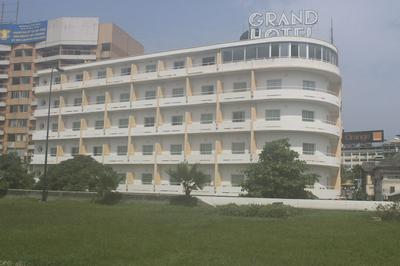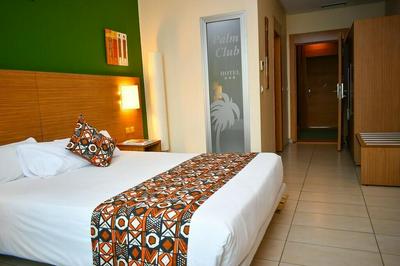When to visit Côte d’Ivoire during the year?
Côte d’Ivoire has a tropical climate, making it a year-round destination, though the best time to visit is during the dry season from November to March. This period is ideal for beach lovers flocking to the beautiful shores of Assinie and Grand-Bassam. In spring, cultural festivals like the Abidjan Music Festival attract visitors. Rainfall peaks between April and October, particularly in June, but this is when lush landscapes and vibrant markets come to life. Autumn is perfect for exploring the vibrant city of Yamoussoukro, with milder temperatures and fewer crowds.
How to get to Côte d’Ivoire?
Côte d’Ivoire is accessible through various modes of transport, making it easier for travelers worldwide to explore its beauty. Here's how you can arrive:
- The main airport is Félix Houphouët-Boigny International Airport (ABJ) in Abidjan, with international flights from all continents, including:
- North America - New York (JFK)
- Europe - Paris (CDG)
- Africa - Lagos (LOS)
- Asia - Tokyo (NRT)
- Oceania - Sydney (SYD)
- Budget airlines operate routes from major cities, enhancing accessibility.
- Flight times vary, with typical durations being approximately 12 hours from New York and 6 hours from Paris.
- Main stations in large cities such as Abidjan and Bouaké offer bus services connecting various regions.
- Popular routes include Abidjan to Yamoussoukro, and the journey usually takes about 3 to 4 hours.
- The rail network primarily operates between Abidjan and Ouagadougou in Burkina Faso.
- Travel time can range from 12 to 15 hours, providing a scenic view of the countryside.
- The country has a network of well-maintained highways, such as the A3 connecting Abidjan to Bouaké.
- Distances from major cities in West Africa, like Accra in Ghana, are roughly 250 km.
- Most roads are in good condition, but travelers should be aware of potential tolls along major highways.
Tourist activities in Côte d’Ivoire
Côte d’Ivoire offers a rich tapestry of activities across its stunning landscapes and vibrant cities. For nature enthusiasts, the Taï National Park, a UNESCO World Heritage site, is home to diverse wildlife, including chimpanzees and rare birds. Visitors can also explore the beautiful beaches of Assinie and the lively atmosphere of San Pedro, known for its aquatic adventures. In the cultural realm, the lively markets of Abidjan and the historical architecture of Yamoussoukro, including the Basilica of Our Lady of Peace, offer a glimpse into Ivorian heritage. For those seeking adventure, hiking in the scenic mountainous regions near Man provides breathtaking views. Additionally, the vibrant nightlife in Abidjan, full of music venues and dance clubs, ensures both locals and tourists have an unforgettable experience. Festivals throughout the year, like Fête du Ramadan or the Abidjan Music Festival, showcase the country's rich traditions and communal spirit.
Accommodation in Côte d’Ivoire
Côte d’Ivoire's accommodation options cater to all types of travelers. In urban areas, luxury hotels like Sofitel Abidjan Hôtel Ivoire provide upscale amenities for discerning guests. For budget-friendly alternatives, hostels and guesthouses offer comfortable options in cities like Bouaké and Yamoussoukro, averaging between $15 to $30 per night. Beach resorts along the coastal areas could be pricier, averaging $70 to $200 depending on the season. In rural areas, traditional guesthouses offer an authentic experience, often at lower rates. During peak tourist seasons, from November to March, it’s advisable to book in advance to secure the best deals and locations. Overall, Côte d’Ivoire presents a diverse range of staying options—the picturesque view from a beachside villa compared to the vibrant city life from a downtown hotel enhances the travel experience exponentially.
Food in Côte d’Ivoire
The cuisine of Côte d’Ivoire reflects the rich culture and diverse population of the country. Staples include rice, cassava, and yams, often served with spicy sauce varieties. One must-try dish is ‘foutou,’ a doughy staple paired with delicious stews such as ‘petit pois.’ Street food is abundant, with options like ‘attiéké,’ a fermented cassava dish that’s both healthy and satisfying—average meal prices in local eateries range from $3 to $10. For those seeking traditional dining experiences, restaurants in Abidjan, such as Le Grand Bleu, serve authentic Ivorian dishes alongside fresh tropical juices and local beers. Enjoying food markets like the Treichville market can also reveal hidden gems of local cuisine.
Important numbers and information
- Emergency Services:
- Police: 101
- Ambulance: 112
- Fire Brigade: 118
- Embassy Contacts:
- U.S. Embassy: +225 22 49 40 00
- British Embassy: +225 20 20 80 00
- Airports:
- Félix Houphouët-Boigny International Airport, Abidjan - Address: Aéroport d'Abidjan, Abidjan
- Currency: West African CFA franc (XOF); credit cards widely accepted in urban areas.
- Visa/Passport: Check the visa requirements based on your nationality prior to travel.
What to see in Côte d’Ivoire?
Côte d’Ivoire is rich in natural beauty and cultural landmarks that captivate visitors. The capital city, Abidjan, is not to be missed, with its vibrant Plateau district and the stunning Basilica of Our Lady of Peace. Other notable cities include Yamoussoukro, known for its monumental basilica, and Bouaké, where you can explore local markets. The coastal town of Grand-Bassam offers a glimpse into colonial architecture and beautiful beaches. Nature lovers will appreciate the diverse ecosystems in Taï National Park, whereas the picturesque landscapes around Man are perfect for hiking and picnicking. Finally, don’t overlook the remarkable UNESCO World Heritage sites, like the historic town of Grand-Bassam, showcasing the depth of Ivorian history and culture.
History, geography and climate
Côte d’Ivoire's history is marked by its rich cultural diversity, once dominated by several kingdoms and empires. The French colonized the area in the late 19th century, and it became a republic in 1960. Geographically, the country features coastal plains, the forested interior, and the mountainous regions in the west. Côte d’Ivoire experiences a tropical climate, displaying two main seasons: a dry and a wet season. Average temperatures can range from 22°C to 32°C throughout the year. The lush landscapes contribute to a vibrant ecosystem, hosting numerous wildlife and plant species that are unique to the region.
Population and culture
Côte d’Ivoire has a diverse population of around 26 million people, reflecting over 60 ethnic groups, including the Akan, Krou, and Mandé. The official language is French, while numerous local languages such as Akan and Mandé are widely spoken. Various religions coexist, with Islam and Christianity being predominant, along with traditional African beliefs. Cultural traditions are rich, with various festivals celebrating music, dance, and the arts, highlighting the vibrant Ivorian culture. Significant holidays include Independence Day and Yamoussoukro Festival, showcasing the nation's spirit and heritage. Unique cultural features, from traditional music styles to handicrafts, further enrich the Ivorian identity.

